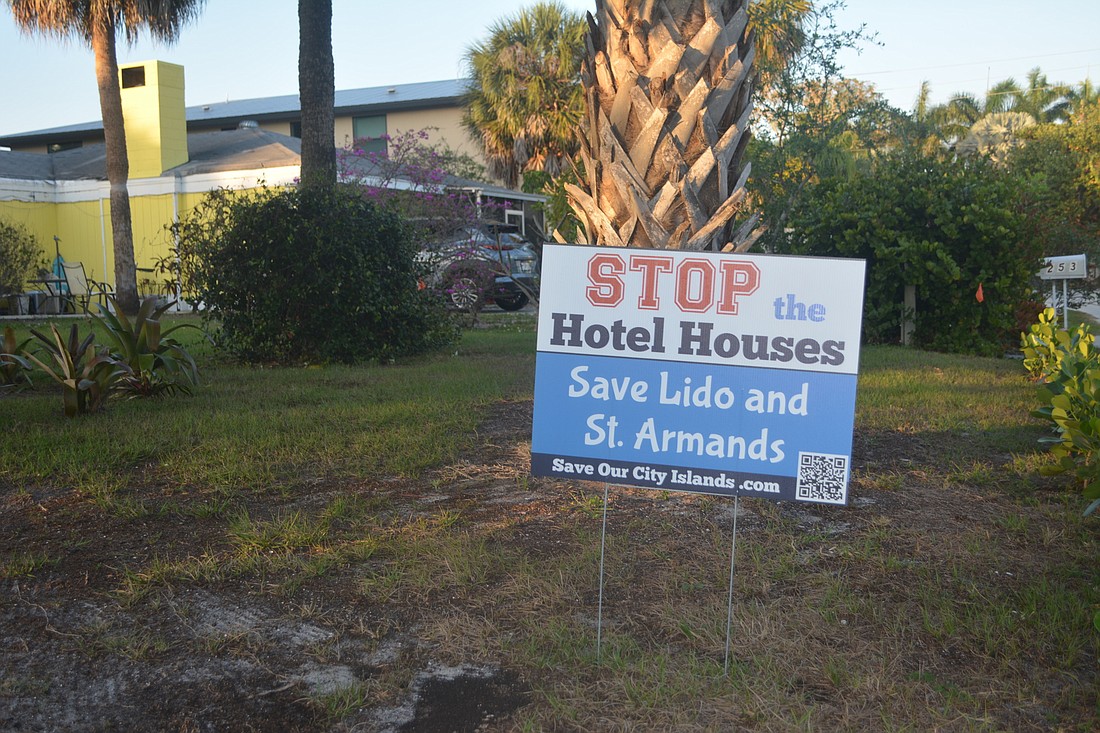- July 26, 2024
-
-
Loading

Loading

Revenues from fees associated with regulating vacation rentals in Sarasota’s coastal communities fall short of related expenses to the city, and a possible expansion of the vacation rental ordinance citywide would only amplify the losses, city commissioners learned during last week’s budget workshop.
Director of Development Services Lucia Panica, whose department is the regulatory arm of the vacation rentals policy, told commissioners the expected total revenue for the current fiscal year is $30,900 while the total expenditures for staff and a rental tracking database provider is just more than $131,000.
“You can see there's a really big discrepancy between revenues and expenditures every year,” Panica said. “Our revenues are expected to decrease just because the annual renewal fee is much less than the initial registration fee.”
Meanwhile, owners of the 140 registered homes rented on a short-term basis are raking in on average $635 per night and an annual average of $213,360.
In May 2021, the city approved the vacation rentals policy to register and regulate vacation homes in response to an outcry by residents of the barrier islands who complained about the ease of enjoyment of their own properties and the potential impact on their property values.
Under the ordinance, the owners of vacation rental properties are subject to safety inspections, local occupancy taxes and business taxes, and they must require a minimum stays of seven full days and nights. With an estimated 700 homes throughout the city also operating as vacation rentals — as evidenced by the software that tracks marketed properties — commissioners are considering adopting a citywide ordinance.
With no changes in the fee structure, though, that would significantly exacerbate the current $100,000 gap between revenues and expenses — on average a $714 loss per unit based on fiscal 2023 numbers — that is currently being covered by the general fund.
“What basically is happening here is the general taxpayers are paying for these hotel houses when they should be covering their own costs,” said City Manager Marlon Brown. “As you can see, they're bringing in a lot of revenue themselves and we're collecting nothing. I know it's difficult to ask the commission to increase fees, but these are fees for a profit-making enterprise, and so therefore I think we should be covering our expenses for this service.”
Currently, the initial registration fee, which also covers city inspection, is $250, with an annual renewal fee of $150. Re-inspection fees also apply when necessary. To put that into perspective, the average new vacation rental pays that initial fee back in one night, with $385 to spare. Panica said regulating vacation rentals citywide, though, will require additional personnel and considerably more expense.
In researching other jurisdictions’ policies, Panica said fees are typically double to triple the amount Sarasota charges, but on average are just more than double.
“Double wouldn't even cover the cost, though,” said Commissioner Jen Ahearn-Koch. “I remember in the original draft of the ordinance that the fee was $450, and I think that we can make a rational nexus between what it costs and what we would charge. I don't think that's a big leap to take. My concern is the state, and perhaps if we did this sooner rather than later maybe we, having something already on the books, will be allowed to continue with it if we're preempted.”
During a later budget workshop discussion, four commissioners agreed to revisit both the vacation rental rates and citywide expansion of the ordinance over the objection of Commissioner Erik Arroyo.
“I don’t know what problem we are trying to solve by expanding it,” Arroyo said. “I haven’t heard anything from any residents regarding issues with wanting this to go to other areas of the city. We solved the issue with hotel houses. I feel like we’re trying to solve a problem that doesn’t exist.”
Ahearn-Koch countered that she has received multiple complaints from residents, some who wanted their neighborhoods to be included in the 2021 ordinance.
“I’ve shared this information before that on Anna Maria Island it used to be 80% residential and 20% vacation rentals,” she said. “In four years it’s flipped over to now it’s 20% residential and 80% rental. This has the potential to ruin the quality of life for our citizens. The last thing we want to do is to start seeing our property values decrease because of the impact of hotel houses.”
Commissioner Debbie Trice said there is a misperception that “hotel houses” are four- to six-bedroom homes.
“What we’re also seeing in neighborhoods on the mainland are regular single-family homes rented out for a week, and sometimes illegally for a night,” she said. “I have heard concerns and complaints from a lot of people in the mainland neighborhoods wanting us to outlaw them, which Florida statute does not permit.”
Requiring them to register, she added, provides a point of contact with the city government for residents in the event of disturbances resulting from the short-term renting of homes.
“This is a situation that I think needs to be headed off at the pass before it proliferates because it can get out of hand,” said Mayor Kyle Battie. “It’s already damaged our supply because now people are looking at their properties as an investment to make money as opposed to renting them out for families.”